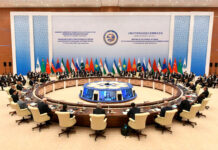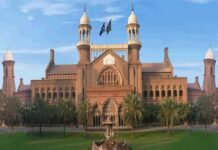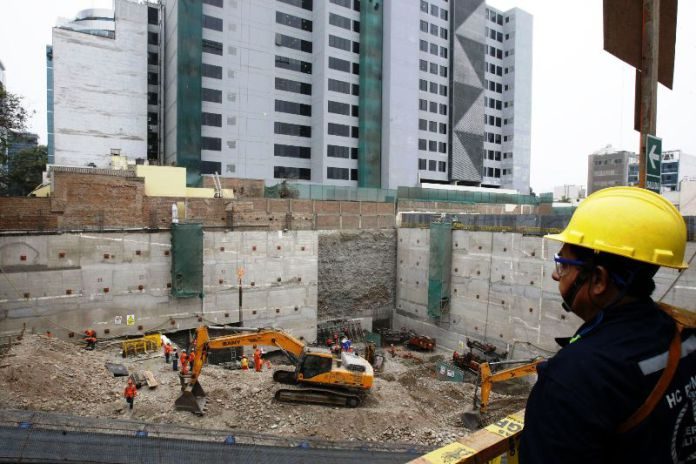KARACHI: Association of Builders and Developers of Pakistan (ABAD) has decided to launch low-cost housing projects in Karachi, Lahore and Islamabad through which it plans to provide small houses to low and middle-class people.
According to a report of the State Bank of Pakistan (SBP), the yearly estimated housing demand is 400,000 units while the actual supply is only 150,000, leaving a shortfall of 250,000. If we calculate from the last 10 years, there could be a shortage of 2.5 million units in the country.
“Looking at the housing demand in Pakistan, ABAD had decided last year to launch low-cost housing projects in Karachi, Lahore and Islamabad aimed at the low and middle-class people,” said ABAD Chairman Arif Jeewa.
“The cost of the houses will range from Rs 1,500,000 to Rs 2,000,000 and ABAD has already identified 400-500 acres of land in Islamabad for the project. After signing purchase deals, we will initiate our first housing project very soon. More than 50,000 applications have been received so far against the announcement of 5,000 units in Islamabad only,” he informed.
The chairman further complained about the non-cooperative attitude shown by the provincial and federal governments. “No government was ready to give us land for these projects. We conducted several meetings with the prime minister and chief ministers of the provinces but all disappointed us,” he said.
ABAD Patron-in-Chief Mohsin Sheikhani also complained about the government’s attitude. “The government is not ready to assist the builders working in the country, therefore we have decided to purchase land and start our own projects in Karachi, Lahore and Islamabad,” he stated.
ABAD has requested the federal government to make a special board through which affordable housing projects can be provided with a one window facility so that they can initiate their projects, he added.
“The housing sector is playing a major role in economic growth and stabilisation through the creation of jobs in construction sector and demand for financial services. The housing and construction industry has the potential of absorbing a large number of skilled and unskilled workforce, significantly mitigating unemployment and thereby reducing poverty in the country,” he commented.
“After 20 to 30 years, the government housing projects like Taiser Town, Surjani Town are still waiting for the development of road infrastructure, sewerage system and other facilities,” said Aqeel Kareem Dhedi, a leading broker and builder in Pakistan. Private housing schemes complete their projects in three to four years with all basic facilities, he added.
Impact of Supreme Court verdict
After Supreme Court (SC) intervention in the Sindh Building Control Authority (SBCA) in May 2017, the prices of commercial land in Karachi have declined as the SC verdict has discouraged builders from building high-rise buildings on small plots.
The builders had allegedly built 12 to 16 story buildings on 400 to 500 square meters plots after giving huge bribes to SBCA. In this connection, former SBCA chief Manzoor Kaka and others have been dismissed from their posts.
The apex court allowed the builders to construct only six-story buildings in Karachi and warned that the prescribed limit should not be breached.
According to a rough estimate, construction on almost 400 plans with a total investment of Rs 900 billion for high-rise buildings in Karachi is waiting approval of the Sindh government.
No credit facilities or housing loans
In Pakistan, there is no credit facility for the urban poor in the formal banking structure. Credit is essentially tied to collateral, which excludes all those who do not possess any land.
Those who are providing loans to the urban poor are demanding almost double or triple interest on the long-term loans. All the emphasis lies on house construction loans. Loans of small amounts are not granted by financial institutions and others banking channels.
“The SBP has taken initiative for low-cost housing and directed banks to make plans for financing to the low and middle-class people,” Mohsin Sheikhani said.
It may be encouraged to venture into new avenues such as community mortgage programmes, housing credit assistance to public and corporate organisation employees, support to bankable housing projects in the private sector and options of drawing funds from the public through permissible financial channels.
According to the market analysts, there is a need to take stock of the research work done in these respects and examine their suitability and relevance to housing demands in various contexts.
International Journal of Science, ‘Basic and Applied research
According to a report of International Journal of Science, ‘Basic and Applied Research (IJSBAR-2015 Volume 24),’ “Pakistan is facing the challenge of urbanisation and inadequate housing due to an exodus of population from rural to urban areas since the 1960s. Of the total population of almost 201 million, in the year being reported, the urban population in Pakistan constitutes about 36.2 per cent, and is increasing at a rate of 2.6 per cent per year.” “This process of rapid urbanisation, the report claimed, has resulted in overcrowding of cities and deterioration of the environment.
It further said that the massive backlog vis-à-vis the need for housing is speedily multiplying the problems of the people who are at loss to understand as to how and when will this problem be resolved.
Prime Minister assures ABAD for reducing taxes:
Prime Minister Shahid Khaqan Abbasi in a recent statement has assured the members of ABAD that federal taxes on the transfer of properties will be reduced and brought to a rational level.
After imposing a federal tax on the transfer of properties, issues like double taxation have increased all over the country, he added.
“The builders and developers are still purchasing land for their projects, but they do not register these properties on their name only to avoid any further tax,” said a builder requesting for anonymity. He said they make the plot owners partner in the deal.
The Prime Minister assured ABAD of providing all the basic facilities including water, gas and electricity for the ABAD Social Housing Schemes in Islamabad, Karachi and other cities of the country besides also reducing federal taxes on the transfer of properties.
In an apparent move to inject new life in the property market before the general elections, the federal government slashed property valuation rates by up to 57 per cent for certain localities of Karachi, Lahore, Islamabad, Rawalpindi, Peshawar and Faisalabad.
However, now, instead of increasing the rates for collection of federal withholding and capital gains tax, property valuations have been pushed down for certain localities of six major cities.
Builders, developers and real estate dealers believe the downward-revised FBR valuations were a huge blow to the sector and it may take time before the sector can stand on its feet again. The stakeholders want the government to reduce the percentage of 12 per cent taxes (including 3 per cent federal and about 9 per cent provincial levies).
“We want the government to gradually reduce the combined 12 per cent taxes to help improve investor sentiment,” ABAD chairman said.
Perturbed with the slowdown in the property market, it seems that the government wants to provide some sort of incentive to investors, the chairman ABAD said.

























Editor
First, welcome to Islamabad on two days Zameen.com show.
Let me welcome first the announcement of the ABAD that it tends to go for the low cost housing for the poor and the middle class living .But the experiences for the past history by all government and the private sectors show that it is all the lullabying and the poor and the low income people are at the same footpath and the whole properties are owned by the rich or their agents who has no concerns with the poor or the deprived in the society.
The elites or the rulers had no sense of realizing for the poor so they never had done for the poor and the shelter less in the society. Meanwhile many schemes are announced by our rulers but their ultimate beneficiaries are the rich and their agents or the elites of the district management who support the builders while proceeding for acquiring the lands and the legal procedures.
We need to make this culture totally changed and set a new culture for the shelter less and the needy not by just talking but doing the practical measures for the poor.
As you know, almost more than 20 to 40 KMs of the suburban areas of each city have been occupied by these housing societies but the poor is still on the footpath and more than 80% houses built so far are owned by the rich or their copartners. The time is calling we all to rethink our strategy to help out the poor and the skytented people in the society.
As you have talked about the SC orders for not making the high rising buildings these would not help the poor but were a major source of minting and benefiting the district management.
The recent two days seminar or the property show in Islamabad needs much more to be projected as the milestone for a change for the poor not for the minting just at the cost of the shelter.
We have invited you all the participants to join us for publishing your special report in our 23rd March Special
Edition in which you could cover your saying and communicate your messages to a larger scale people.
On Sunday we would like to have your comments on the said two day show in Islamabad with its objectives and the purposes either benefiting the needy at easy and affordable cost or just for doing the business.
We hope you will be available for the said purpose and we could talk about the issue and the success of such ventures that need to be carried on in future caring the poor too.
Thank you
Abdul Razaq Chishti
Mob.03345022647